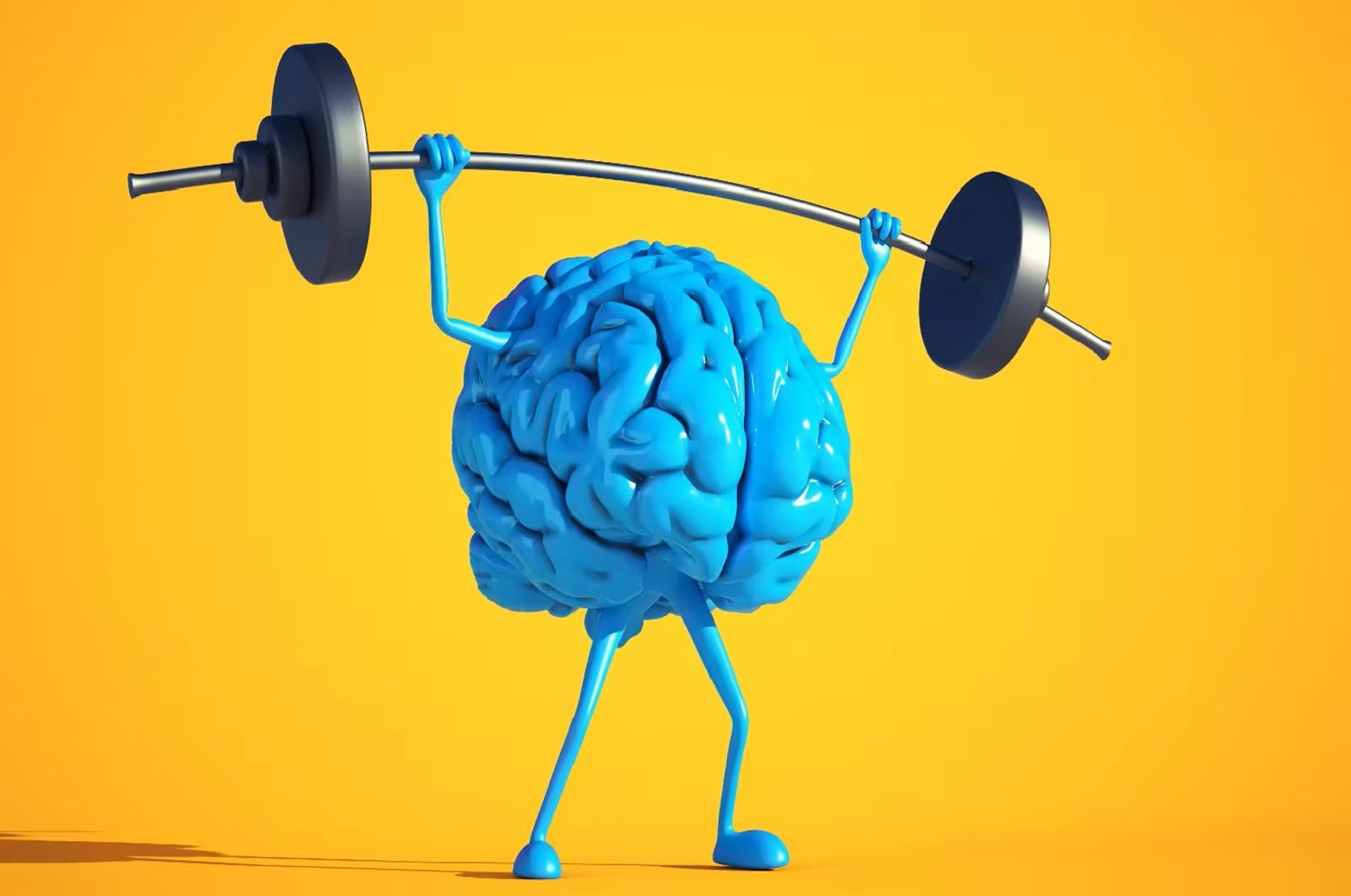Similar to a muscle, your brain gets stronger the more you use it. These brain exercises can improve your focus, mental clarity, and cognitive flexibility, whether you’re a student, working professional, or just trying to maintain your memory. Let’s look at ten simple, yet scientifically supported, strategies to improve your cognitive abilities.
Why Brain Exercises Matter
The Science Behind Neuroplasticity
Your brain isn’t just a fixed entity—it’s a dynamic powerhouse that can rewire itself thanks to a fascinating phenomenon known as neuroplasticity. This means that your thoughts, actions, and experiences can actually change the way your brain is structured and how it functions.
Scientific research has demonstrated that engaging in regular mental challenges fosters the development of new neural connections, improves memory retention, and even boosts gray matter density in crucial areas like the hippocampus and prefrontal cortex. Whether you’re learning a new language or solving puzzles, these activities encourage your brain to adapt, keeping it sharp and agile no matter your age.
Benefits of a Mentally Active Lifestyle
Keeping your brain engaged doesn’t just boost memory—it supports your overall cognitive health and emotional well-being. A mentally active lifestyle has been linked to:
- Slower cognitive decline with age
- Reduced risk of dementia and Alzheimer’s
- Enhanced focus and decision-making skills
- Greater emotional resilience and stress tolerance
- Improved creativity and problem-solving abilities
Just like physical workouts keep your body strong, brain exercises are essential for mental fitness. And the best part? Activities like reading, meditation, learning new skills, or even socializing can all count as brain-boosting habits.
10 Best Brain Exercises to Sharpen Your Brain
1. Solve Puzzles and Brain Teasers
Solving puzzles—be it crosswords, riddles, or logic challenges—really gets your brain working! These activities are fantastic for boosting your cognitive skills, enhancing your memory, sharpening your attention, and improving your problem-solving abilities. Whether you’re enjoying a quick game of Sudoku or diving into a challenging riddle, you’re helping your brain create new neural pathways, which is essential for keeping it sharp. Studies have shown that engaging in mentally stimulating activities like these can even help delay cognitive decline as we get older. So, why not carve out 10 to 15 minutes each day for a puzzle? Start with something simple and gradually move on to tougher ones to keep your brain in great shape!
2. Play Strategy-Based Games (Chess, Sudoku, etc.)
Games that require a bit of planning and critical thinking, such as chess, Sudoku, or Go, are fantastic for giving your brain a solid workout. These strategy games encourage you to think several steps ahead, which can really enhance your logical reasoning, focus, and pattern recognition. Take chess, for example—it activates both sides of your brain, boosting your creativity as well as your analytical skills. Sudoku, on the flip side, helps improve your number sense and short-term memory. Playing these games regularly has been associated with increased mental agility and sharper decision-making skills. Why not try playing for just 20 minutes a day, or join some online platforms for brain-training challenges with others? It’s a fun, competitive way to keep your mind sharp and support your cognitive health over time.
3. Try Memory Games or Flashcards
Memory games train your brain to recall information quickly and accurately. Using flashcards, matching games, or apps like Lumosity strengthens short-term memory, visual recognition, and concentration. These games mimic the kind of memory retrieval we use in daily life—like remembering names, lists, or where we placed keys. Start with simple memory pair games or create flashcards for random topics. As your skills improve, increase the difficulty. Regular memory training can boost mental clarity and is especially useful for students, professionals, and older adults wanting to stay mentally sharp.
4. Learn a New Skill or Language
Trying out a new skill—like whipping up a new recipe, jamming on an instrument, or diving into a new language—can really get your brain buzzing by forming new neural pathways. This fascinating process, called neuroplasticity, is how our brains adapt and evolve. For example, when you learn a language, it activates parts of your brain that deal with memory, understanding, and reasoning. Even just 15 minutes a day of practicing something new can lead to impressive progress over time. Use language apps, online courses, or workshops to keep yourself consistent. The trick is to keep your brain engaged with something fresh and fulfilling. It’s like hitting the gym, but for your mind!
5. Meditation and Mindfulness Practice
Meditation goes beyond just achieving a sense of calm; it’s really about taking control of your mind. Engaging in mindfulness practices can boost your focus, help you regulate your emotions, and improve your working memory. Studies that use brain scans have revealed that regular meditation can lead to increased gray matter density in brain regions associated with learning and memory. You can kick things off with just 5 to 10 minutes a day, concentrating on your breath or a mantra. As you get the hang of it, you can gradually increase the time or try out guided meditations on apps like Headspace or Insight Timer. Mindfulness is a great way to declutter your mind, enhancing your clarity of thought, problem-solving skills, and stress management. A calm mind is often the sharpest!
6. Read Daily (Books, Blogs, or News)
Reading is like a workout for your brain, engaging your comprehension, imagination, and memory. It boosts your vocabulary, sharpens your focus, and helps you retain and process information better. Whether you’re getting lost in a novel, exploring an educational blog, or catching up on the latest news, reading fires up various cognitive functions all at once. Aim to read for at least 20 minutes each day. Mix it up with different genres, languages, or formats like audiobooks and articles to keep it exciting. Plus, reading fosters empathy and emotional intelligence, making it one of the best all-around mental exercises you can do.
7. Write with Your Non-Dominant Hand
This fun and unique exercise really gets your brain’s motor cortex working and encourages it to adapt. When you write or brush your teeth with your non-dominant hand, you’re actually creating new neural pathways, which helps improve your coordination and brain flexibility. Start off with simple tasks, like drawing shapes or signing your name with your other hand. With a bit of regular practice, you’ll see a boost in your focus and fine motor skills. Plus, this quirky activity enhances mindfulness since it demands your full attention. It’s a fantastic way to challenge your brain in a fresh and playful way!
8. Practice Visualization Techniques
Visualization is a powerful mental tool that top athletes and professionals use to boost their focus and improve their performance. It’s all about vividly imagining different scenarios, outcomes, or objects. By practicing visualization, you can enhance your spatial memory, ignite your imagination, and sharpen your planning skills. To get started, simply close your eyes and picture your daily routine or mentally walk through a specific task. You can also visualize your successes or calming scenes to help ease stress. Spending just 5–10 minutes a day on this practice can really clear your mind and get your brain ready for the challenges ahead. Think of it as a mental dress rehearsal for achieving success.
9. Do Simple Math in Your Head
Take a break from the calculator every now and then! Doing math in your head keeps your brain sharp and quick. Whether you’re figuring out discounts while shopping or tackling little math problems during your breaks, this straightforward habit can really boost your focus, memory, and number skills. Start with simple multiplication or percentages, and gradually challenge yourself with tougher problems. Math gets your prefrontal cortex working, which is key for logical thinking and making decisions. Just five minutes of mental math each day can significantly enhance your ability to think on your feet and stay clear-headed.
10. Engage in Regular Physical Activity (Especially Aerobic)
Exercise is more than just a physical activity; it’s crucial for your brain health as well! Engaging in aerobic exercises such as walking, swimming, or cycling increases blood flow to your brain, which helps generate new neurons and enhances your memory, mood, and concentration. Additionally, physical activity ramps up the production of brain chemicals like dopamine and serotonin, which are key for cognitive performance and emotional wellness. Aim for at least 30 minutes of moderate aerobic exercise five times a week. Even simple things like dancing or a quick walk can greatly boost your brain function in the long run.
How to Stay Consistent with Brain Training
Staying consistent with brain training is crucial for reaping long-term cognitive benefits. Just like with physical exercise, keeping your mind fit requires regular practice and a clear intention. Here’s how you can create a sustainable brain training routine:
Create a Daily Mental Fitness Routine
Consider brain training as important as brushing your teeth—it’s a non-negotiable part of your day. Start with just 10 to 15 minutes daily at a time when your mind is at its sharpest, like in the morning or early evening. To create a solid routine, try pairing it with another habit, such as right after your coffee or just before meditation. Keeping your sessions short, fun, and engaging will help you stay consistent and not skip out on it.
Use Brain Training Apps (like Lumosity, Elevate, etc.)
Thanks to digital tools, getting your brain in shape is now both simple and enjoyable! Apps such as Lumosity, Elevate, and Peak provide engaging, science-based games that focus on enhancing your memory, concentration, problem-solving abilities, and mental agility. You can easily set reminders, tailor your training to fit your needs, and monitor your progress. The gamified approach makes it easy to stay motivated and consistent in your practice.
Set SMART Goals to Track Progress
To set effective mental goals, try using the SMART framework—Specific, Measurable, Achievable, Relevant, and Time-bound. A goal like “I will finish 5 memory games every week for the next 30 days” is far more actionable than simply stating “I want to get better at memory.” Plus, tracking your progress helps reinforce your commitment and allows you to enjoy small wins throughout your journey.
Read Also:
How to Meditate: Discover Powerful Meditate Benefits & Proven Meditation Benifits for Mind and Body
What Is Love? The Truth Behind the Most Powerful Emotion
FAQ:
Q1. Do brain exercises really work?
Yes, regular brain exercises improve memory, focus, and mental agility by enhancing neuroplasticity.
Q2. How long should I do brain exercises daily?
Just 15–30 minutes a day can make a significant impact on cognitive function over time.
Q3. What is the easiest brain exercise for beginners?
Solving puzzles or memory games is a fun and simple way to get started.
Q4. Can brain exercises help prevent memory loss?
Yes, mental stimulation helps slow cognitive decline and may reduce the risk of age-related memory loss.
Q5. Are mobile brain training apps effective?
When used consistently, they can complement traditional methods and provide structured practice.









